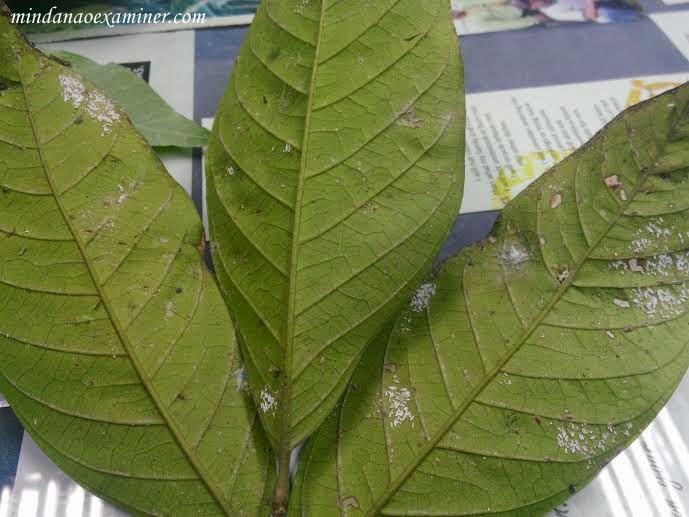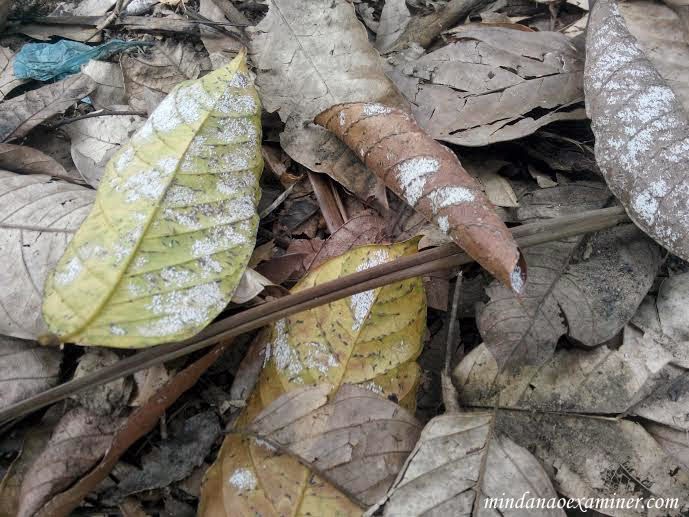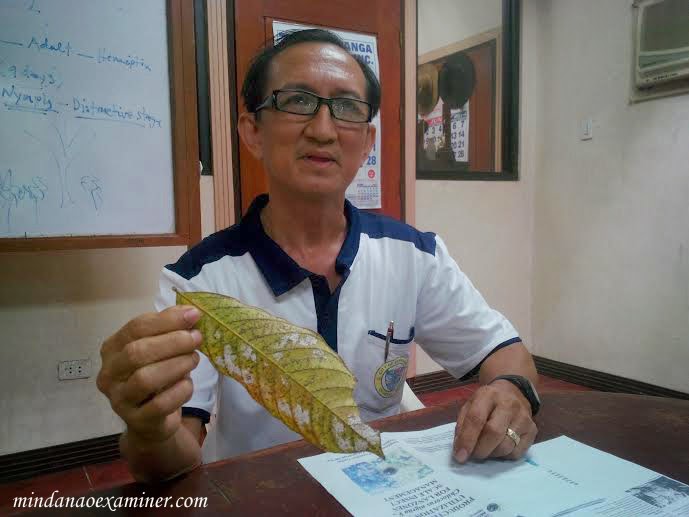
ZAMBOANGA CITY (Mindanao Examiner / June 12, 2014) – The invasive species of coconut scale insects have already reached Zamboanga City in the southern Philippines and agriculture officials expressed alarm over the infestation that is now threatening fruit trees.
Dr. Carlito Robares, chief of the Crop Division of the Zamboanga City Agriculture Office, said the infestation has affected the village of Baluno after the insects attacked not only coconut, but other fruit trees such as Lanzones (Lansium domesticum).
He said the same species have wrought havoc in nearby Basilan province, particularly in Isabela City where more than half of its 33 villages where huge plantations of coconuts and rubber, and Lanzones were infected with coconut scale insects.
Robares said they are monitoring other villages in Zamboanga City and has urged farmers and village officials to take immediate actions or coordinate with the agriculture office to prevent the spread of the infestation.
“We are now working double time here and this is very alarming now because the coconut scale insects have reached Zamboanga City where there are many plantations not only of coconut, but various fruit trees,” he told the regional newspaper Mindanao Examiner.
The Philippine Coconut Authority has previously warned that the coconut scale insect infestation in Basilan may spread to other areas. It has formed an inter-agency task force to address the worsening problem brought about by the infestation in Basilan, one of 5 provinces under the Muslim autonomous region.
Rudy Corsame, the PCA provincial manager, said the task force involves various government agencies such as the Basilan Agriculture Office, the Coast Guard, the Philippine National Police, the Maritime Industry Authority, Department of Labor and Employment, and the Bureau of Plant Industry, among others.
He said the Task Force CSI (coconut scale insects) will quarantine all plants and seedlings coming to Basilan – one of five provinces under the Muslim autonomous region – to ensure that no invasive species of insects such as the coconut scale would be able to enter the island.
Efren Carba, the PCA provincial coconut development manager, said the invasive species of coconut scale have destroyed over 76,000 coconut trees in Isabela City in Basilan alone. He said they are yet to receive funding to control if not eradicate the coconut scale infestation in the Basilan.
The same infestation has ravaged the provinces of Cavite, Laguna, Batangas, Rizal, and Quezon – all in Luzon Island and officials were trying to determine how the insects (Aspidiotus Rigidus) managed to find its way to Basilan.
Carba said the infestation of the coconut scale is at the moment within Basilan and there were no reports of attacks on coconut plantations in Sulu and Tawi-Tawi provinces, and also Zamboanga Sibugay, Zamboanga del Sur and Zamboanga del Norte, all in western Mindanao.
He said pests attack the leaves and fruits of coconut trees and there were reports that mangoes, bananas ang other fruit trees are also at risk of infestation in Basilan. He said there were other species of coconut scale in Basilan, but not the same species bow wrecking havoc to coconut plantations in the province and in Luzon.
Carba said the life cycle of a coconut scale insect – a small, flat, yellowish scale with a semitransparent or whitish, waxy covering – is 30-32 days with each insect can spawn up to 50 eggs in just one week. Eggs are laid under the scale cover and hatch into a stage called crawlers that are dispersed by the wind, on clothing of people, or on the feet of birds and other flying animals.
He said they are now using biological and chemical spray to kill the insects and stop the spread of the infestation. He said the species Aspidiotus destructor is endemic in Basilan and a minor pest of coconut, but the newly reported, Aspidiotus rigidus, is invasive and causing outbreaks and not known to be present before in the province. (Ely Dumaboc)






